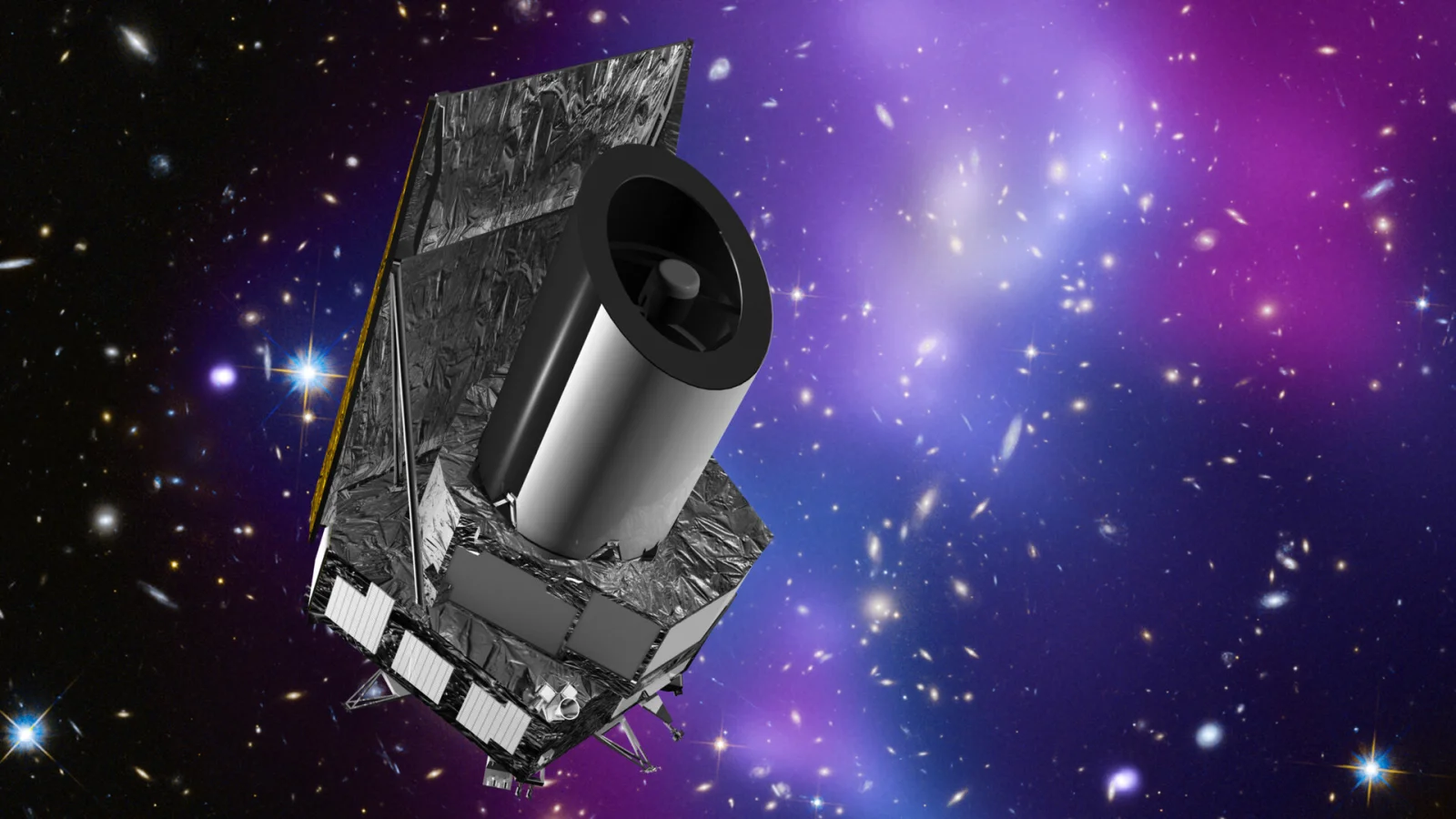Euclid


It will help to better understand dark energy and dark matter (ESA)

Euclid is a European Space Agency (ESA) space mission launched in July 2023. It aims to understand why the expansion of the Universe is accelerating and what causes this acceleration, which physicists refer to as dark energy.
The Euclid mission will explore how the Universe has evolved over the past 10 million years by addressing fundamental physics and cosmology questions about the nature and properties of dark energy and dark matter, as well as gravity. Euclid will also provide relevant information on the physics of the early Universe and on the initial conditions that led to the formation of the cosmic structure.
Euclid will carry out an extensive mapping, in a 6-year mission operating at the L2 Lagrangian point. The mission will be equipped with a telescope with a 1.2-metre-diameter mirror supporting 2 instruments: a high quality panoramic imager (VIS, ‘Visible Instrument’), and a near-infrared photometer with 3 filters and a slitless spectrograph (NISP, ‘Near Infrared Spectrograph and Photometer’).
Acknowledgements: This work was (partially) supported by the Spanish MICIN/AEI/10.13039/501100011033 and by "ERDF A way of making Europe" by the European Union through grants PID2022-141079NB-C31, PID2019-111317GB-C31, ESP2017-89838-C3-1-R (MINECO/FEDER, UE), ESP2015-66861-C3-1-R (MINECO/FEDER, UE).
THE IEEC CONTRIBUTION
The IEEC is highly involved in Euclid as part of the mission's Science Team and a member of the Governing Board. It is responsible, together with the Institut de Física d’Altes Energies (IFAE), for the delivery of the Filter Wheel Assembly (FWA) of the Near Infrared Spectrograph and Photometer (NISP). The Institute led the Simulation Organisation Unit and is deputy coordinator of the Photometric Redshift Organisation Unit of the Scientific Ground Segment. The IEEC led the Cosmological Simulations Science Working Group and actively participates in other Science Working Groups.
TEAM
With the support of


